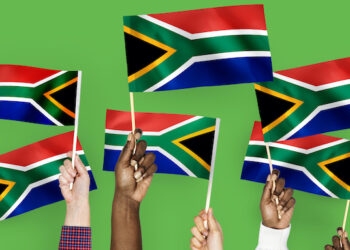With the municipal elections just a week away, political parties are ratcheting up the heat and the rhetoric. Much of that is taking place on television, but for once, the oft-maligned SABC is not being accused of being the instrument of Luthuli House. Coverage of the run-up to the May 18 vote has some pundits praising the public broadcaster, and it’s not only for news, but for voter education too.
The Times’ S’Thembiso Msomi recently wrote that a ‘quiet revolution’ was taking place at Auckland Park. “The current series of TV election debates, hosted by veteran journalist Vuyo Mvoko, have become a must-see for everyone concerned with issues affecting local governance and politics in general,” he wrote in a column. And, he added, “Gone are the days when the predominant voices you would hear ahead of an election were those of ruling party leaders.”
Of course, it is voter apathy that is the biggest threat to the elections, and the SABC is hoping to counter that with various series that make voter education fun and educational.
Not only are the characters in the popular daily drama, Isidingo, talking about why voting is so important on an almost daily basis, but SABC Education has two series that highlight the importance of voting and democracy.
The Right To Win started on Saturday on SABC2 in a convenient lunchtime slot. It is described as having on “a new approach to civic and voter education in an entertaining game-show format”.
Commissioning editor, Surekha Singh at SABC Education’s Public Information and Social Development unit, says it makes “voter education fun”. Contestants have to prove they are smarter than a politician. Six players are divided into to two teams of three each and are asked challenging questions about democracy. At the end of the round the team that’s ahead on points chooses one member of the opposing team for elimination
In the next round, the two teams answer multiple-choice questions and race each other to build a structure called The House of Democracy. The team with the lowest score at the end of the round is eliminated. The remaining contestants are then challenged with a series of “quick fire” questions and the one with the lowest scoring points is eliminated.
The remaining two enter the Great Debate where a controversial aspect of a living democracy is featured and gets two solid arguments going; one ‘for’ and one ‘against.
The studio audience choose the most convincing speaker who wins the R10 000 prize. Each week viewers and the studio audience stand a chance to win BlackBerry cell phones.
Presenter Aubrey Poo said the show creates “an awareness of constitutional rights for people who don’t have access to that kind of information. The show does that in a fun and exciting way while challenging contestants and people sitting at home to use their thinking caps”.
The Right To Win is produced by Kagiso TV and Communications & Endemol SA for SABC Education and the Independent Electoral Commission’s civic and democracy education campaign.
The second series is Khululeka Siyavota, a democracy education drama that is screened on SABC 2 on Tuesday nights. It is set in the Western Cape and revolves around the extended Zwane family, their friends and community. The series encourages youth to participate in democratic processes by taking a strong human rights approach about individual and group rights.
Khululeka Siyavota, produced by Penguin Films for SABC Education in partnership with The Independent Electoral Commission (IEC) reminds viewers that every vote has the power to make a difference. The IEC contributed to the civic education content of the script.
Pontsho Maketha, head of the Public Information and Social Development unit of SABC Education says, “Every South African will see him or herself in the series. The emphasis of Khululeka Siyavota is that democracy needs nurturing; each person must take responsibility and participate in elections. The series addresses issues of voter education, the secrecy of your vote and emotional readiness around voting. The cornerstones of democracy support the content of the series specifically the right to dignity and equality. We examine issues of accountability and transparency of those holding public office and pay attention to institutions of democracy that support the community”.














